I’ve always been a fan of a little shock and awe in art, even more so when it’s embedded with social commentary. Maybe not the kinda societal whammies Russian artist Alexander Brener delivers—like taking a dump in front of a Van Gogh painting at the Museum of Fine Arts in Moscow. Seems senseless, but I’d be lying if I said it didn’t put a smile on my face—if for no other reason than for the fact that Brener is an emotional guy. And like New York-based photographer Phil Toledano states about his work and political art in general: “The point is not the art but the reaction it causes.” And the reaction I get to Phil Toledano’s work is what brings us together today for this conversation.
“The point is not the art but the reaction it causes.”
Phil Toledano
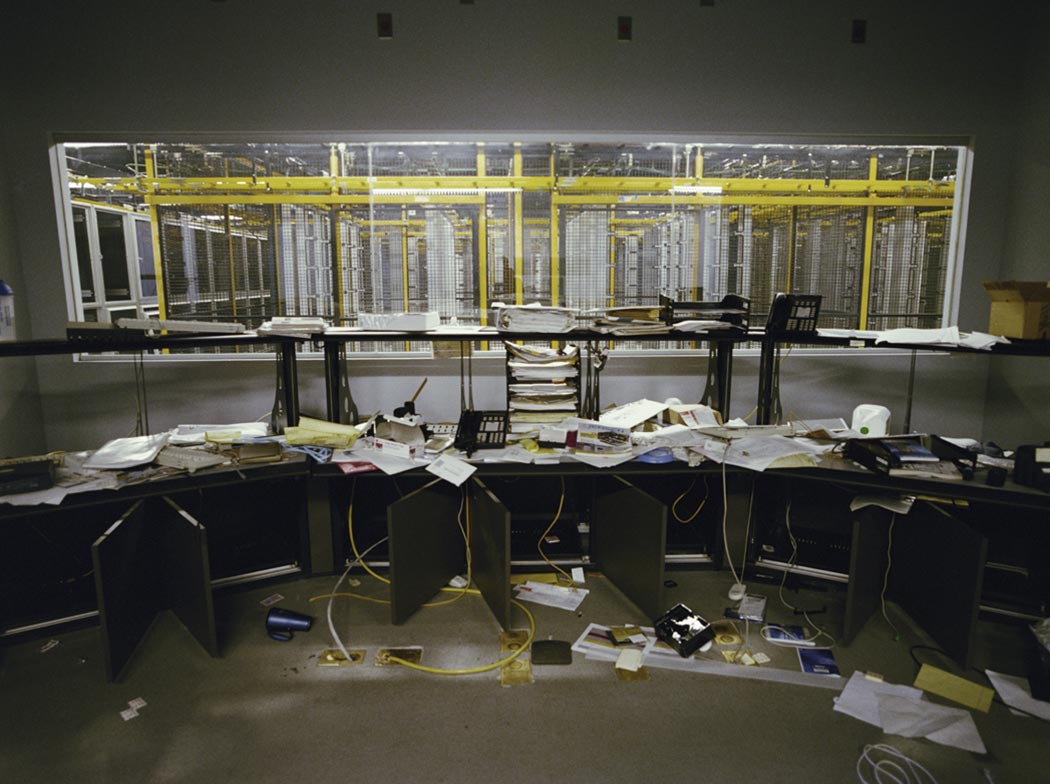
When did you realize photography was something you wanted to pursue as a career?
I suppose when I realized that it was (probably) the only thing that I could do really well, or for that matter, the only thing I really wanted to do really well. Also, it was the one constant thread running through my life.
Speaking of “threads and constants,” your projects cover a variety of subjects. Is there a conscious theme that ties them together?
I’m interested in sociology. In the mechanism of our society, how it works, what happens when it fails, etc.
It must be like the land of milk and honey for you at the moment. Is work like a double-edged sword, though? I imagine the topics you cover must grate on the psyche a bit.
Actually, the things I work on don’t grate on me at all—I tend to work on a very subconscious level—I know it sounds a bit odd, but it’s true…I don’t know where the ideas come from, and I’m not entirely sure why I do them…the gravitational pull, I suppose.
So no idea where the idea for “Phone Sex” came from?
I have no idea. It was just something that was airdropped into my cerebral cortex and seemed interesting at the time.
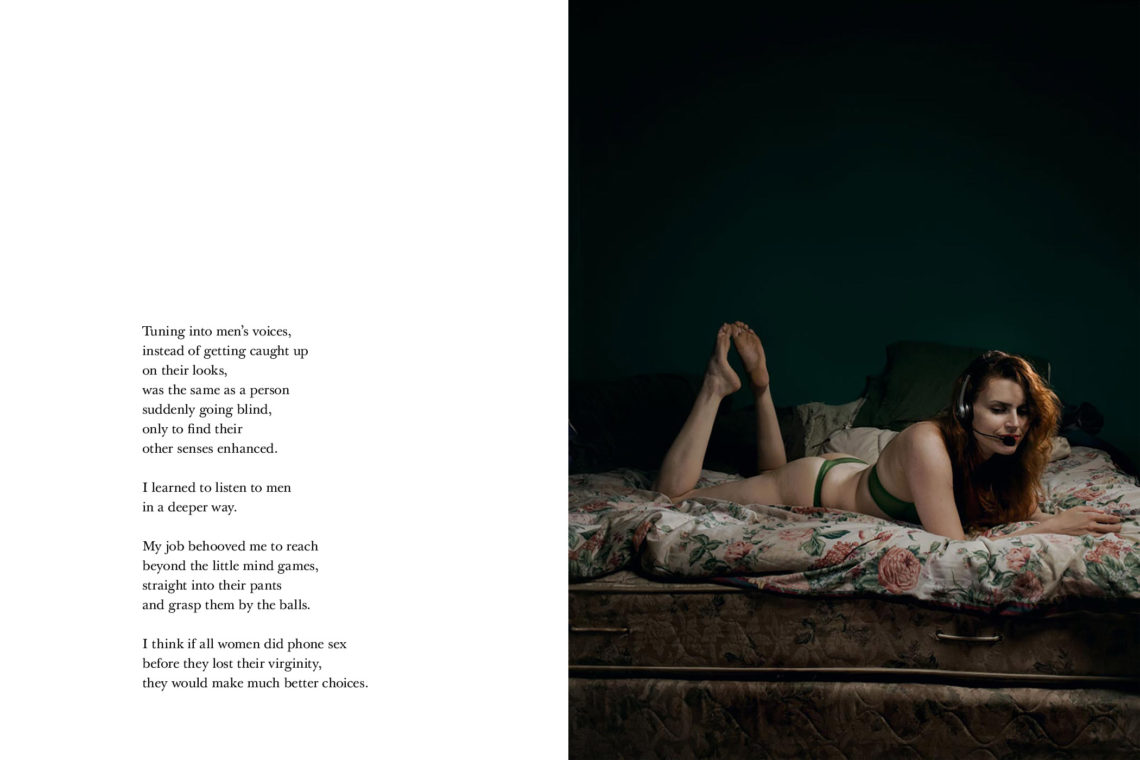
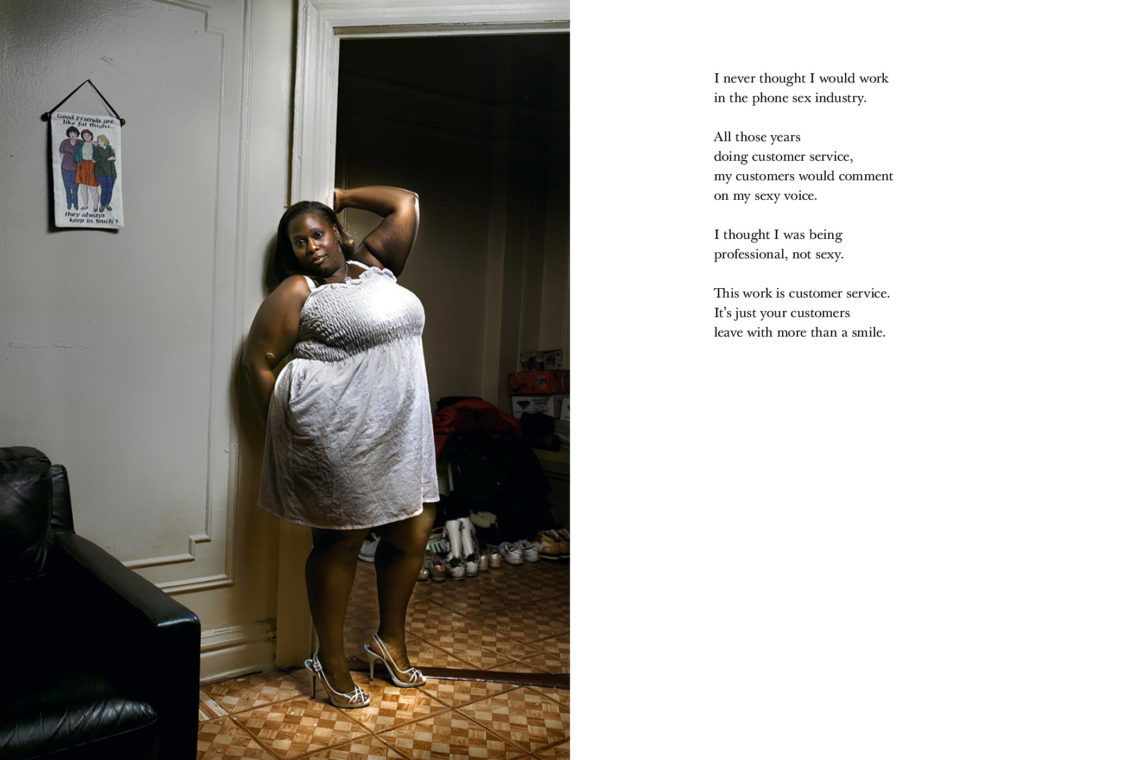
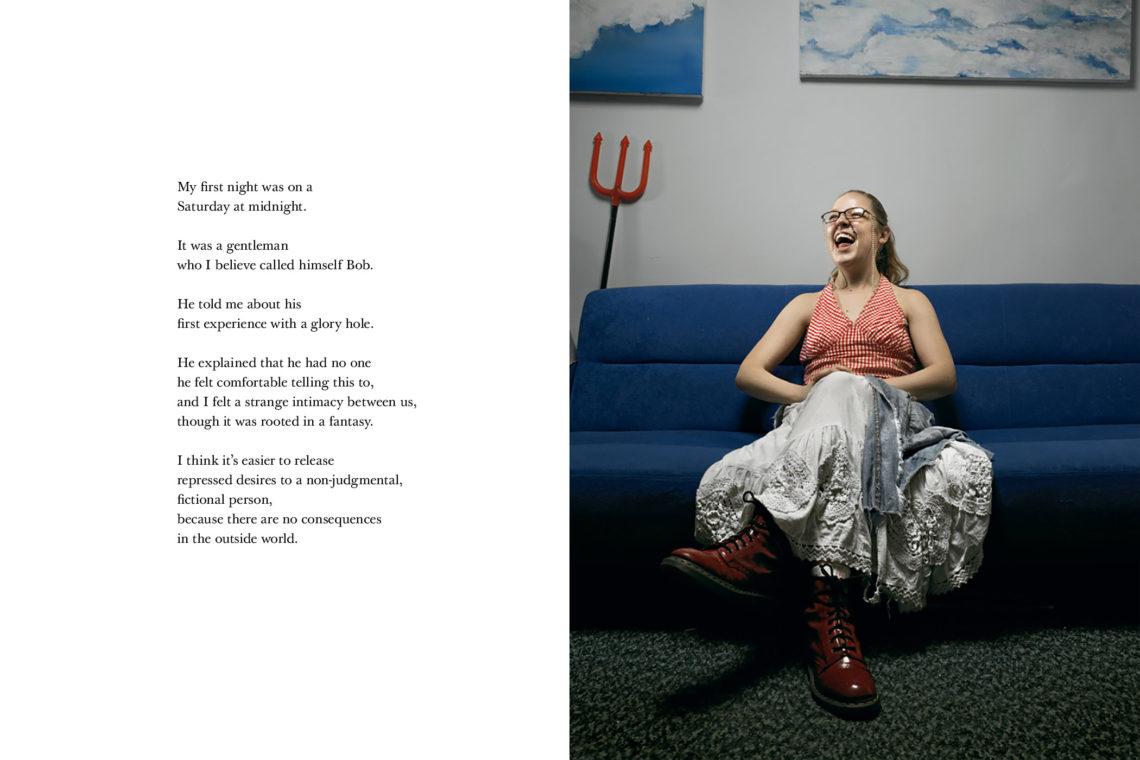

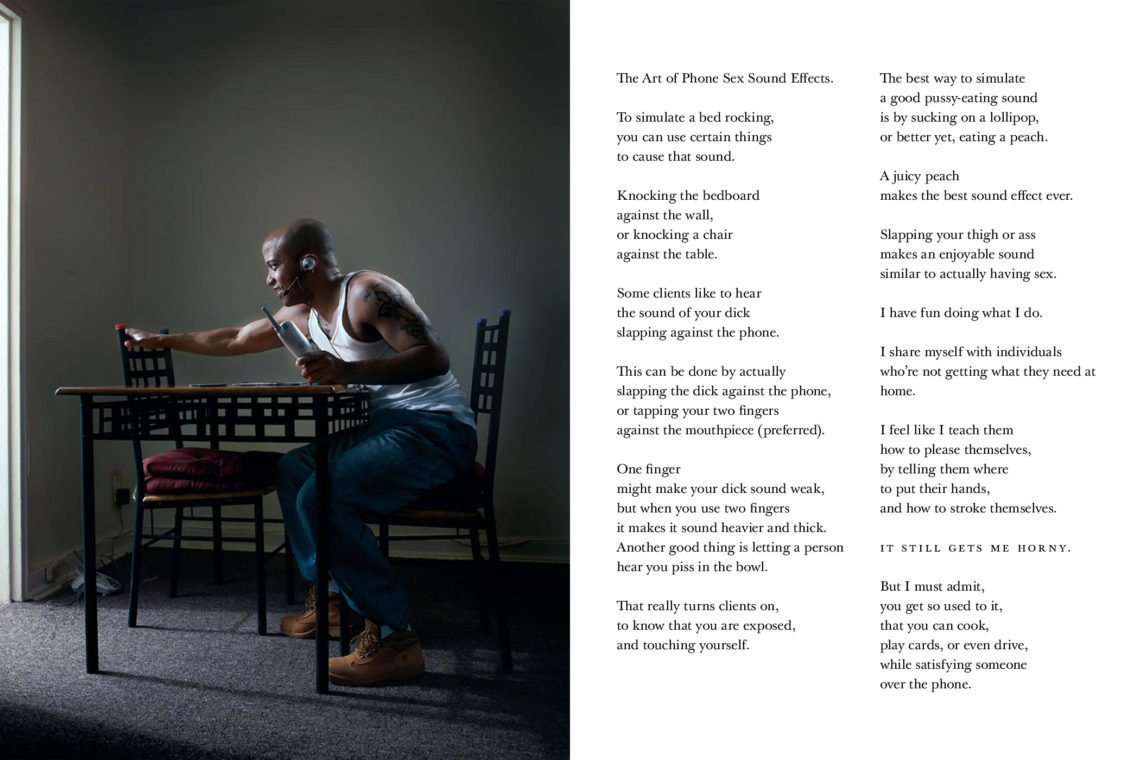

No judging, but have you ever called one yourself?
Everyone asks me that. No. Not that I’d be against it, though.
Was it challenging to get the people to agree to be included?
It really wasn’t that hard. I posted on Craigslist, and often subjects would come through referrals. Most of the time, their writing was great—I would have to edit it a bit, but it was usually all there. Occasionally, there would be a back and forth and a little nudging…
Did you have any preconceived notions about what the people would be like face to face?
No idea. But I found them to be extraordinarily generous with their spirit. I was amazed by the skill required to be a phonesex operator. Also, everyone seemed to really enjoy what they were doing.
Did you discover anything about yourself?
Well, I realized that I was fantastically boring, sexually.

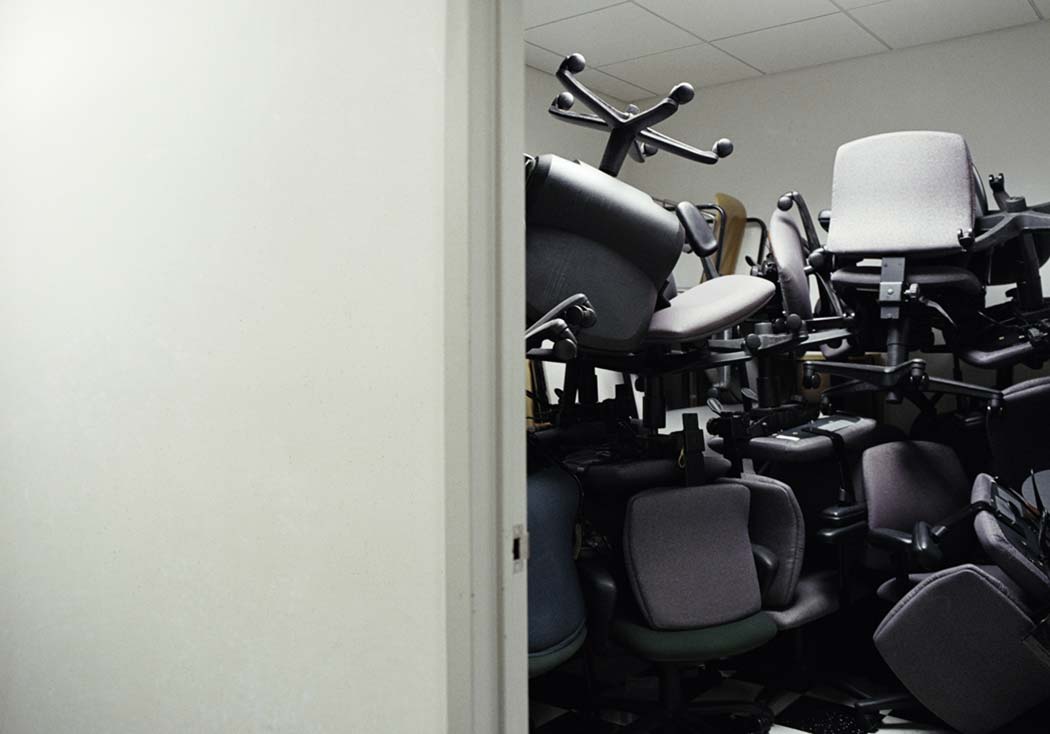

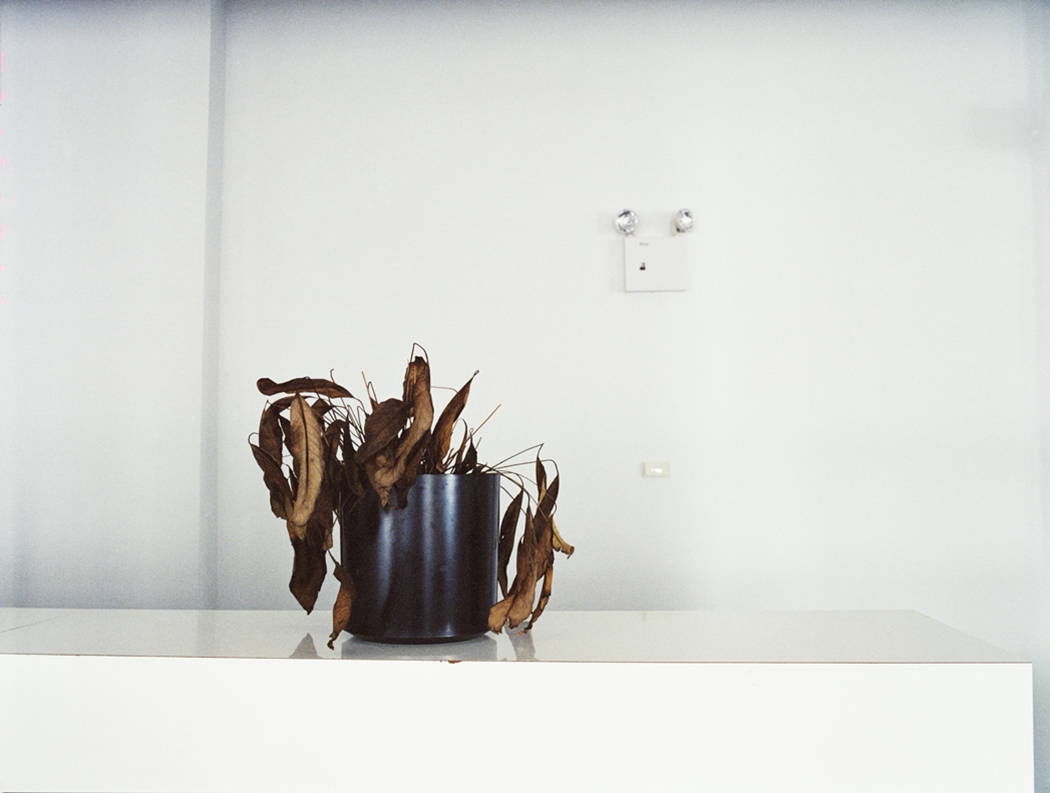
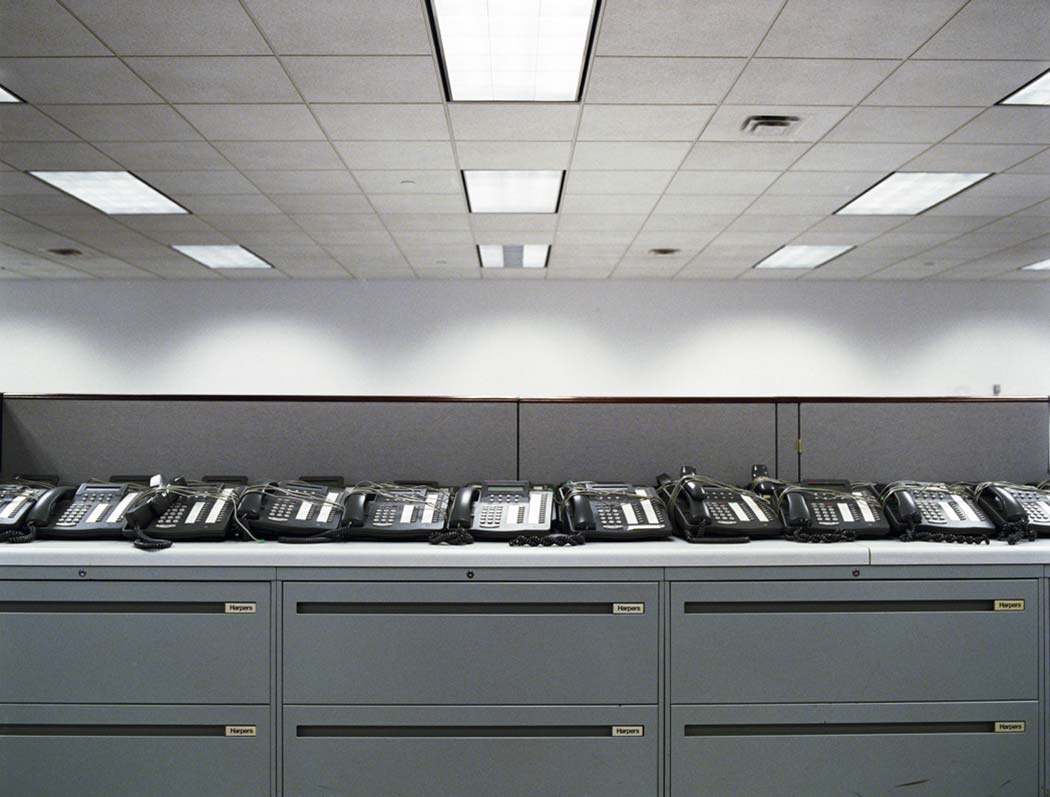

Your “Bankrupt” hits like a ton of bricks right now. Do you feel optimistic about the future?
Well, I feel optimistic about my artistic output but pretty bloody pessimistic about the world in general and the economy in specific…
When you create something like “America, The Gift Shop,” does public opinion/fear of controversy enter your mind?
I would be lying to say that it didn’t cross my mind, but I’m quite happy to stir people up—isn’t that (one of) the functions of art? The reaction has been interesting—some people are really horrified. Then again, they should be.
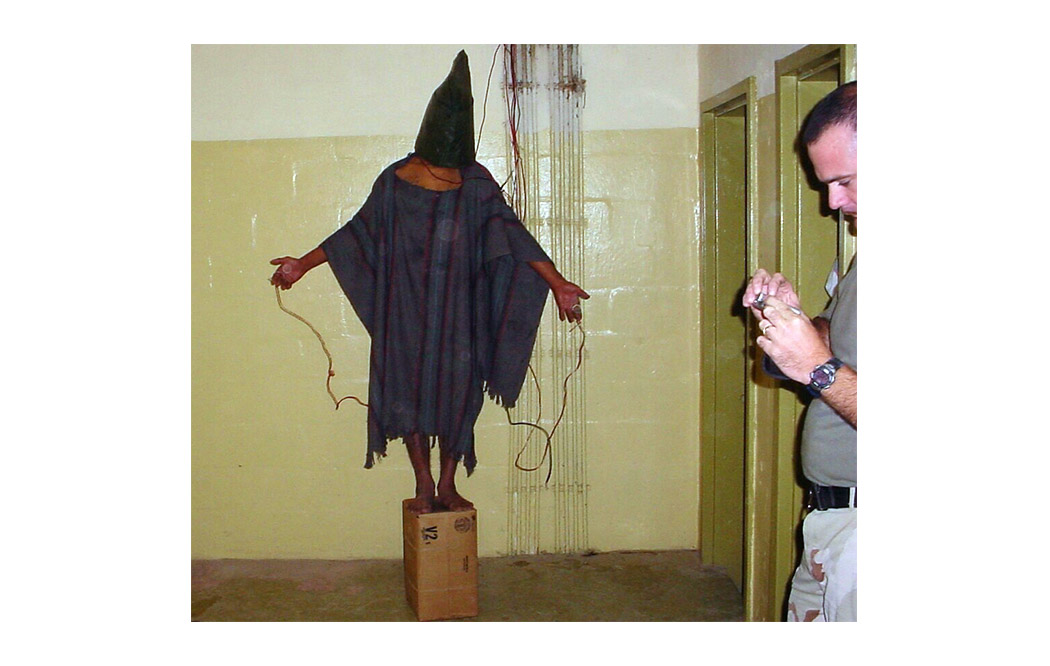
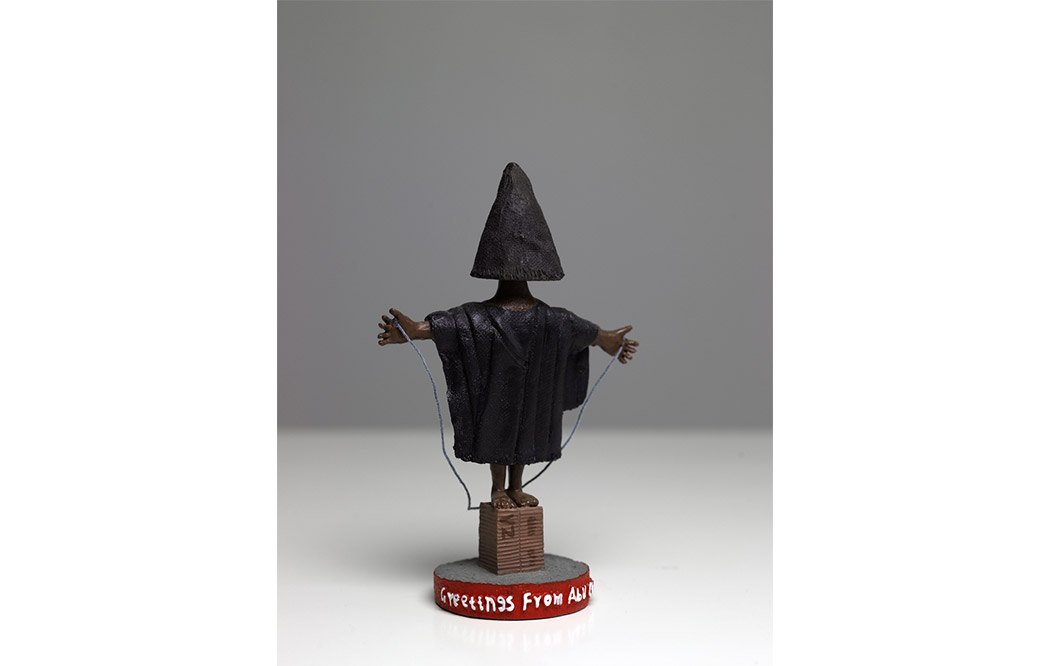

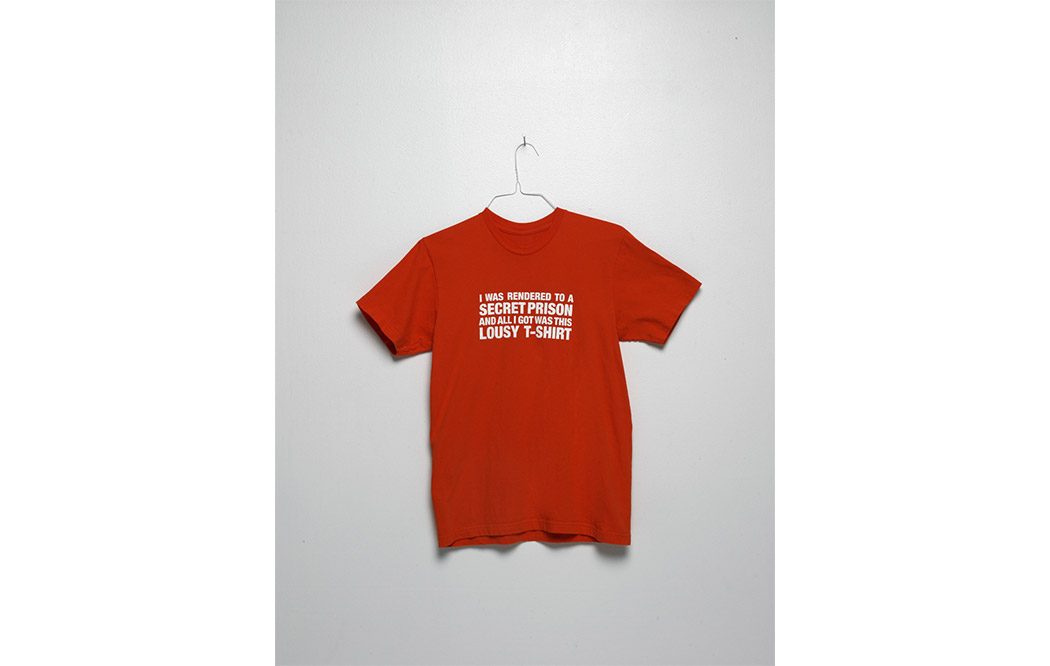

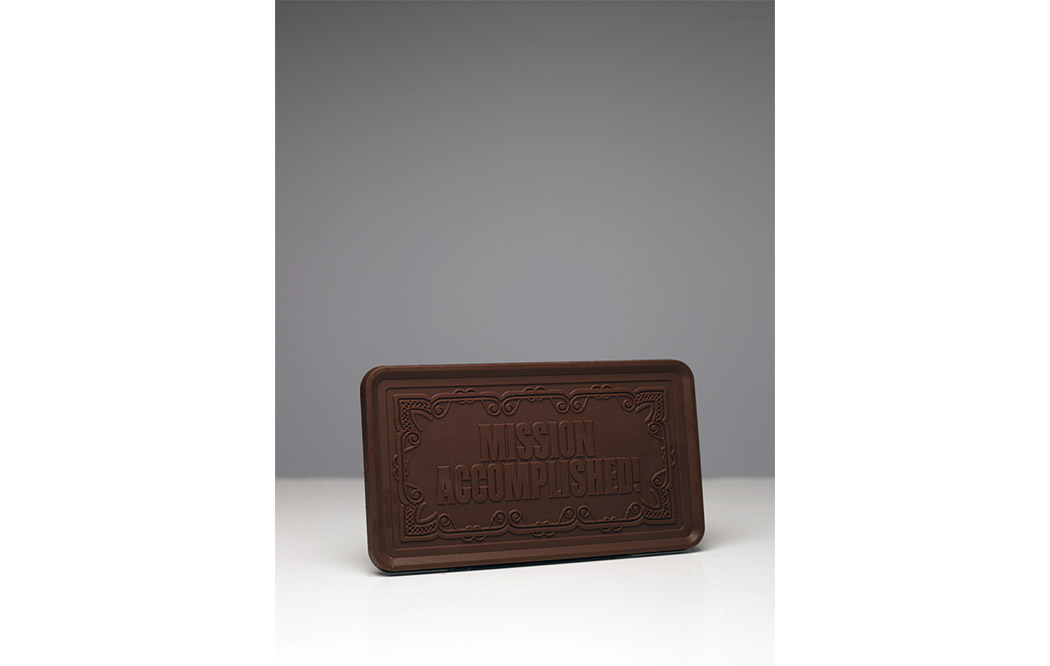
What do you hope people take away after seeing “America, The Gift Shop”?
An active desire to never let those things happen again. To not be cowed by witch hunters who confuse dissent with lack of patriotism. I think political art is always important. But maybe no more or less than any other kind of art. The point is not the art but the reaction it causes.




